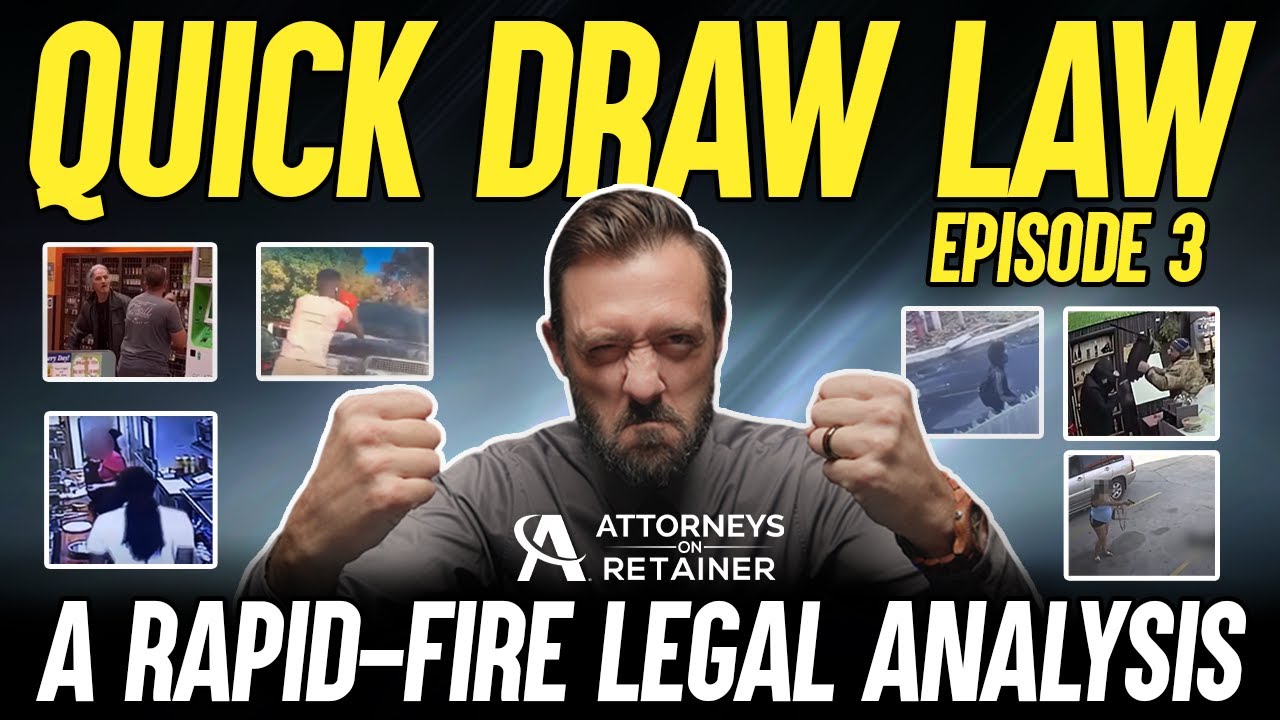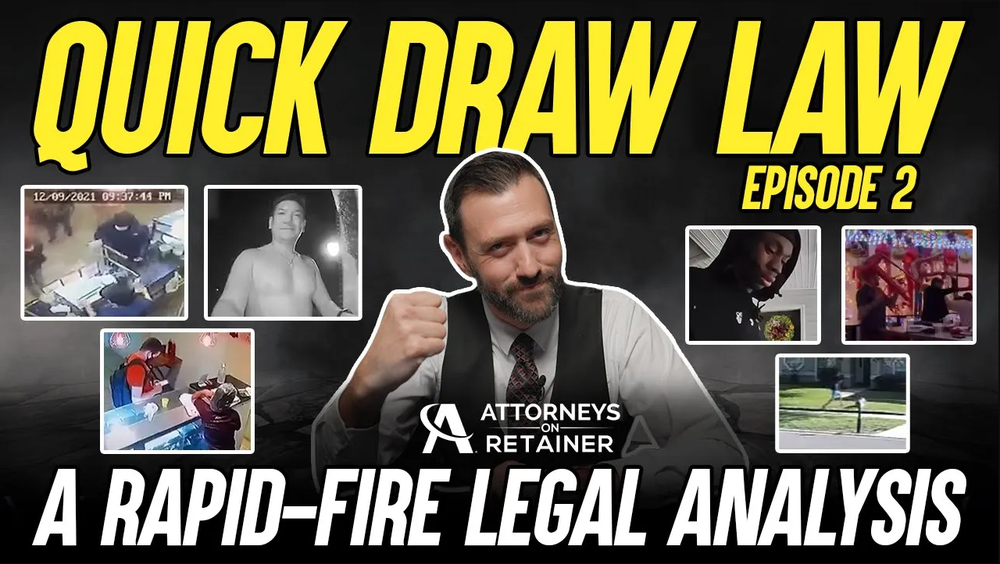Kyle Rittenhouse Verdict and Legal Analysis
By Attorneys Marc J. Victor & Andrew C. Marcantel
November 24, 2021
CHECK YOUR POLITICAL AFFILIATION AT THE DOOR! Two experienced trial attorneys give a full, legal analysis of the Kyle Rittenhouse verdict and self-defense law, on this week’s episode of The Peace Radicals Podcast!
The Attorneys for Freedom law firm has handled many high-profile gun cases in the past from Peter Steinmetz to Doug Haig. As pro-freedom attorneys, they have defended the rights of competent adults to possess firearms for almost 3 decades. Marc Victor and Andrew Marcantel have spoken at many gun events such as the Crossroads of the West Gun Show and many others. They have represented hundreds of people charged with gun crimes in both state and federal court and have been legal consultants on many high-profile gun cases as well.
Today Marc and Andrew will offer an in-depth legal analysis of the events in the Kyle Rittenhouse case, from the incidents that led up to the shooting in Kenosha, to the trial, and verdict. Marc and Andrew are qualified to give analysis on this case because they do not suffer from blind affiliation to a particular political party, so they will give a precise legal analysis that is unbiased as opposed to the usual spin doctors on the right and left.
Background on the Case
On August 25, 2020, Kyle Rittenhouse, a 17-year-old from Antioch, Illinois, fatally shot two men and wounded another in Kenosha, Wisconsin during the protests, riots, and civil unrest that followed the shooting of a black man, Jacob Blake, by a white police officer. Rittenhouse and the three men he shot were white. Rittenhouse was armed with a semi-automatic AR-15 style rifle that he took from his friend, Dominick Black, and both Rittenhouse and Black joined a group of armed men who said they were in Kenosha to protect businesses.
Rittenhouse was charged with two counts of homicide, one count of attempted homicide, two counts of reckless endangerment, one count of unlawful possession of a firearm, and one count of curfew violation. Rittenhouse’s trial took place from November 1 to November 19 of 2021. Judge Bruce Schroeder dismissed the unlawful possession charge and the curfew violation charge during the trial, and a unanimous jury found Rittenhouse not guilty of the remaining charges.
Legal Analysis
To begin, we are not political puppets for the left or right media. As such, we have no interest in making Kyle Rittenhouse or the protestors look good or bad. As attorneys who have seen many such cases, this will be a dry legal analysis. We also do not care what the motives were in this case, because motives are not elements of crimes. There are many irrelevancies in this case, and we will do our best to flag them as we go.
Self Defense – A person has the right to defend themselves against someone else’s unjustified use of force. But you don’t get to use more force than is reasonably necessary to repel the attack. So, if someone is threatening ordinary physical force (threatening to punch you in the face) you don’t get to use deadly force (shooting them) to repel the attack. To use deadly physical force, the force that is being used against you must first be imminent (right now) and second, the force being used is something that could cause death or serious physical injury. One final note on self-defense, you can never use deadly physical force to protect property.
It’s important to also note that if you create a problem, you cannot use self-defense as a defense. Provocation was one of the factors in this case. But, even if Kyle was the initial aggressor, he could regain his right to self-defense by running away. It is clear in the video that he was running away at the time of the shooting. It is not provocation that he traveled to Kenosha or that he had an AR-15 in his possession. That is not provocation, that’s the Second Amendment.
Kyle Rittenhouse Irrelevancies
- That he traveled to a city he did not live in.
- That he was crossing state lines.
- He shows up early before the riots.
- He was asked to protect a car lot.
- Rosenbaum and Huber had a criminal record.
- Mr. Rosenbaum had mental health issues.
What Is Relevant
- Rosenbaum’s statement, “if I catch you alone tonight, I will fucking kill you.”
- Did Kyle Rittenhouse believe that deadly physical force was justified to protect himself from death or serious physical injury?
It’s important to note, that we are discussing what the requirements of the law are for the use of deadly physical force. But just because the law allows it, does not mean this may have been the smart thing to do. The smarter thing to do would have probably been to not put himself in this position in the first place. For example, just because you may not have a duty to retreat, that does not mean that retreating may have not been the smart thing to do if you could safely do so.
I think it’s safe to say that the best thing Kyle Rittenhouse could have done was to stay as far away from this situation as possible. But that is not relevant to the self-defense question. The self-defense question is, at the time he pulled the trigger, did he reasonably believe that death or serious physical injury was being threatened. That’s the question.
In Wisconsin and many other states, the state has the burden of proof to show beyond a reasonable doubt, that he did not act in self-defense. If the state cannot meet this burden, then it’s a not guilty.



